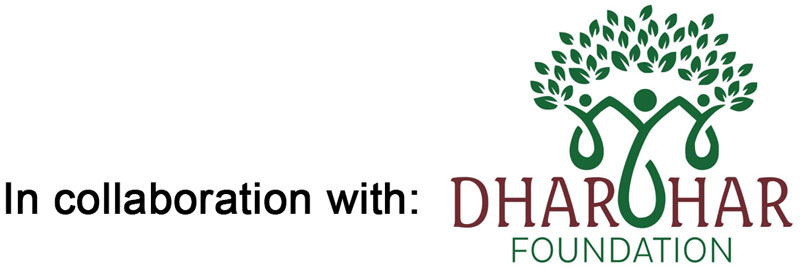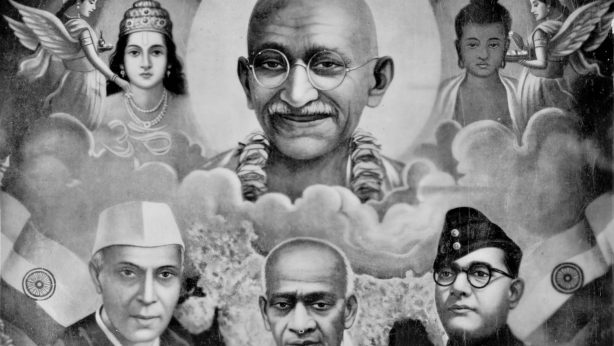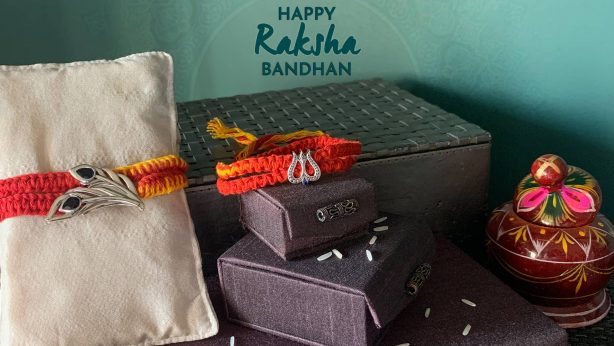Chalo Dharmaj….. Our Customs
ચાલો ધર્મજ – આપણા રીવાજો…

Issue:- 5, Year:-1
Saturday, Ashadh Sud Devpodhi Agiyaras (Devshayani Ekadashi) Vikram Samvat 2076
Date:- 4th July 2020
Dear Dharmajians,
Namaste
Wishing you are well being during these times of the Corona epidemic.
Every society develops various customs, or “reet-rivaaj”, as a part of their social setup. The new generation finds some of these customs of the previous generation quite old and outdated. Thus, with times we see some changes in the traditions too. However, if we try to understand the old customs of our elders, we will find that our elders had great foresight. Many changes have taken place as far as wedding rituals are concerned as compared to five decades ago. In earlier days, weddings took place in the courtyard of the house. Today, we have airconditioned marriage halls or party plots. There is nothing wrong with the amenities available that we can afford today with our wealth and resources. Those who have witnessed both types of weddings feel that something is a miss in today’s times. That something is the warmth of relationships.
In earlier times, most people lived in villages or small towns. Whenever there was a wedding in their own ‘fariyu’ (neighborhood), everyone would become enthusiastically involved as if it was their own occasion. It was a tradition to give “Paaki Maatli” full of various sweets and snacks. A Kandoi used to be called 5-7 days prior to the wedding, especially to prepare these snacks and sweets. The ladies of the ‘fariya’ and family members would get together every day. They sang marriage songs while preparing items for the ‘maatlis. Men folk would knead the dough for mathiya and papad, while the ladies rolled them into round shapes. The Kandoi would start the occasion with ’sukan na saakarya”. Fifty years ago, the “Paaki Maatli” used to be filled with saakariya, papad, kari na ladu and jalebi made in ghee, with each item weighing ~25kg (“sawa mann”, 1 mann = ~20kg) up to a total of 100kg (5 Mann). Additionally, they gave 10kg mathiya, 15kg magas, 15kg gunderpaak, 2.5kg each sev, chevdo and ghanthiya (7.5kg total), 5kg rava puri made of ghee. This was given when the bride was bid farewell. The bridegroom’s family would then distribute to their relatives and close friends in their village. These items were given in earthen pot shaped brass utensils, which is why it was called “Maatli”. This tradition was learnt from an 82yr old elder of the village.
The wedding feast was called “varo”. The previous night, all the men folk from the “fariyu” would gather to chop the vegetables, for which they would carry the knives from their own homes. We remember having attended such feasts with glasses taken from home for drinking water. The point is, even amidst all this discomfort, the enthusiasm of the people made the occasion memorable. People were made to sit on “paatlas” (wooden platforms low to the ground), and people still remember how difficult and painful it was to bend over and serve them all. In spite of it all, we still enjoyed and had a great time. Elders used to teach us how to serve. Each item was placed in a particular spot of the “patrala” (banana leaf plate) and thus it resembled a beautiful rangoli. “Paatlas” would be arranged in a straight line with the help of a long string and thus called “dori chatt” to describe the arrangement. Big vessels of brass like “limbodi”, “bakhadiyu” and “tawda” were used by them. Food was cooked in them on woodfired stoves and thus the food prepared had its own unique taste.
Today, we have access to many amenities. Our people have migrated and settled all around the world and families have scattered. Our new generation has adapted to the new situation and have started a new trend of destination weddings, thus rekindling the values of family relationships. The fact that the whole clan stays together for 3-4 days in a beautiful place is a big achievement in today’s fast and scattered world. This not only makes the marriage memorable, but also strengthens the family’s ties. Today, everybody is lost in the rat race of time. So sometimes, to attend a marriage becomes a mere formality. Feeling of community and the warmth of relationships at weddings are diminishing. Those who have enjoyed the marriages of earlier days do feel that something is missing in today’s weddings despite spending so much. Hence I would like to conclude with a question to our readers – ,can we come together to figure out what is this missing factor? How can we rekindle our traditions to make an occasion more meaningful? We await your reply through email at info@avichal.org.

Rajesh Patel
Dharohar Foundation
Ph. No. + 91 9426500757
Email: rajesh.patel@mydharmaj.com
Translation Credit from Gujarati to English: Milan Rambhai Patel (Dharmaj), Vallabh Vidyanagar
અંક – ૫ વર્ષ – ૧
બુધવાર અષાઢ સુદ એકાદશી સંવત ૨૦૭૬ (દેવ પોઢી અગિયારસ)
તા. ૧લી જુલાઈ ૨૦૨૦
પ્રિય ધર્મજીયનો,
કોરોના સંક્રમણકાળમાં આપ સૌના સારા સ્વાસ્થની મંગલ કામના.
દરેક સમાજ પોતાની સામાજિક વ્યવસ્થાના ભાગરૂપે અનેક રીતરીવાજો ઘડતો હોય છે. નવી પેઢીને પોતાનાથી આગળની પેઢીની કેટલીક બાબતો જુનવાણી લાગતી હોય છે. તેથી સમયાંતરે તેમાં બદલાવ પણ આવતા હોય છે. તેમ છતાં ક્યારેક જુનવાણી લાગતા આપણા આ પરંપરાગત રીવાજોના હાર્દને સમજવા પ્રયત્ન કરીએ તો આપણા વડવાઓની દૂરંદેશી જોવા મળશે. આજથી પાંચ દાયકા પહેલાંના લગ્ન પ્રસંગની સરખામણીમાં આજે અનેક બદલાવ આવેલ છે. ત્યારે લગ્નો ઘરના આંગણામાં જ થતા. આજે વાડીઓ અને વાતાનુકુલિત હૉલમાં થાય છે. અગાઉના સમય કરતાં હાલ આપણે સૌ વધુ સાધન સંપન્ન થયા છે તેથી સગવડો ભોગવીએ તેમાં કશું ખોટુ પણ નથી. હાલ ભૌતિક સગવડો વધવા છતાં જેમણે આ બંન્ને પ્રકારના લગ્નોમાં હાજરી આપી છે તેમની નજરે અત્યારના પ્રસંગોમાં કશુંક ખૂટતુ હોય તેવુ લાગે છે. આ ક્શુંક ખુટતુ એટલે સંબધોની ઉષ્મા છે.
અગાઉ મોટા ભાગે લોકો ગામમાં રહેતા હતા. પોતાના ફળિયામાં લગ્ન આવે એટલે દરેક વ્યક્તિમાં પોતાનો પ્રસંગ હોય તેવો ઉત્સાહ જોવા મળે. સામુહિકતાની ભાવના આપો આપ ઉજાગર થાય. અનેક મીઠાઇઓ અને નાસ્તા સાથે તૈયાર થતી વસ્તુઓની પાકી માંટલી લગ્નમાં અપાતી. તેને તૈયાર કરવા પાંચ કે સાત દિવસ માટે ઘરે કંદોઇ બોલાવવામાં આવે. કુંટુંબના તથા ફળિયાના બહેનો રોજ ભેગા થાય. લગ્ન ગીતો ગવાતા જાય અને માંટલી માટેની વસ્તુઓ બનાવતા જાય. પુરૂષો મઠીયા કે પાપડના લોટ કચરે તો બહેનો વણવાનુ કામ કરે. કંદોઇ શુકનના સાકરીયા પાડી શરૂઆત કરે. આજથી ૫૦ વર્ષ પહેલાં પાકી માંટલીમાં સાકરીયા, પાપડ, કળી લાડુ અને ઘીની જલેબી દરેક સવા મણ મળી કુલ પાંચ મણ આપતા. વધુમાં મઠીયા – ૧૦ કિલો, મગસ – ૧૫ કિલો, ગુંદરપાક – ૧૫ કિલો, સેવ, ચેવડો અને ગાંઠીયા – દરેક ૨.૫ કિલો, રવાની ઘીમાં બનાવેલ પૂરી – ૫ કિલો કન્યા વળાવતી વખતે આપતાં. જે છોકરાવાળા તેમના ગામમાં કુટુંબીજનો તથા અન્ય સગા સંબધીઓમાં વહેંચતા. આ બધી વસ્તુઓ માંટલા આકારની પિત્તળની ગોળીઓમાં આપતા તેથી માંટલી કહેવાતી એવુ એક ૮૨ વર્ષના વડીલ પાસેથી જાણવા મળેલ.
લગ્નના જમણને વરો કહેતા. તેની તૈયારીમાં આગલી રાત્રે ફળિયાના બધા પુરૂષો ભેગા મળી શાકભાજી સમારતા. જેના માટે જરૂરી ચપ્પુ પોતાના ઘરેથી લઇને આવવાનુ રહેતુ. જમણના દિવસે પાણી પીવાના પ્યાલા પણ પોત પોતાના ઘરેથી લઇને અમે ગયા છીએ. કહેવાનુ તાત્પર્ય એ છે કે આટલી અગવડો વચ્ચે પણ સૌના ઉંમગ અને ઉત્સાહ પ્રસંગને યાદગાર બનાવી દેતા. ત્યારે પાટલે પંગત પાડીને જમાડવામાં આવતા. આખી પંગતને વાંકા વળીને પીરસવામાં કેટલી તકલીફ પડતી તે આજે પણ યાદ છે. તેમ છતાં મઝા આવતી હતી. વડીલો કેવી રીતે પીરસવુ તેની સમજણ આપતા. પીરસવાનુ શરૂ થાય ત્યારે અમે જમવાની વસ્તુઓ દરેકના પતરાળામાં નિશ્વિત જગ્યાએ મુકતા જઇએ એટલે ધીમે ધીમે રંગોળી પુરાતી હોય તેવુ દ્રશ્ય ખડુ થતુ. પાટલા લાઇનમાં ગોઠવવા માટે શબ્દ વપરાતો દોરીછટ એટલે પાટલા ગોઠવતી વખતે લાંબી દોરી રાખી એક લાઇનમાં ગોઠવતા. ખાસ લગ્ન માટેના પિત્તળના મોટા વાસણો જેવા કે લીંબોળી, બખડીયુ અને તાવડા વગેરેમાં મોટી ચુલ ઉપર લાકડાના તાપથી બનાવેલી રસોઇનો સ્વાદ જ અનોખો હોય.
આજે આપણે ઘણી સગવડો સાથે જીવીએ છીએ. વધુમાં આપણા લોકો સ્થળાતંર કરીને દુનિયાભરમાં સ્થાયી થયા છે. પરિવારજનો એક બીજાથી દુર દુર રહેતા થયા છે. ત્યારે નવી પેઢીએ બદલાયેલી આ પરિસ્થિતિમાં ઉજવણીનો નવો રસ્તો અપનાવ્યો છે. તે પણ સરાહનીય જ છે. તેમણે ડેસ્ટીનેશન વેડીંગની પ્રથા અપનાવી છે. જેના કારણે પરિવાર ભાવના ફરીથી ઉજાગર થતી જણાઇ છે. કોઇ એક રમણીય સ્થળે આખુ પરિવાર ત્રણ કે ચાર દિવસ સાથે રહે એ પણ આજના સમયમાં મોટી ઉપલબ્ધિ જ ગણાય. જે લગ્નને તો યાદગાર બનાવે જ છે પણ સાથે સાથે પારિવારિક સંબંધોના પોતને વધુ મજબુત બનાવે છે. આજે બધા સમયની દોડમાં પડી ગયા છીએ. તેથી ક્યારેક લગ્ન વ્યવહાર સાચવવા પુરતા બની જાય છે. સામુહિક્તાની ભાવના અને સંબંધોની ઉષ્મા ખોવાતી જાય છે. જેમણે જુના લગ્નો મહાલવાની તક મળી છે તેમને એમ લાગે છે કે આજે અઢળક પૈસા ખર્ચીને પણ કશુંક ખુટે છે. ત્યારે લેખના અંતે આપ સૌ વાંચકોને પુછવાનુ મન થાય છે કે શું આપણે સૌ સાથે મળીને આ ખુટતુ કશુંક શોધી ન શકીએ? આપણી પરંપરાઓને ફરી ઉજાગર કરી આપણા પ્રસંગોને ભાવપુર્ણ તથા અર્થસભર ન બનાવી શકીએ?
અમો આપના પ્રત્યુત્તરની રાહ જોઇશું. info@avichal.org સરનામે.

રાજેશ પટેલ – ધરોહર ફાઉન્ડેશન, ધર્મજ
Ph. No. + 91 9426500757
Email: rajesh.patel@mydharmaj.com















